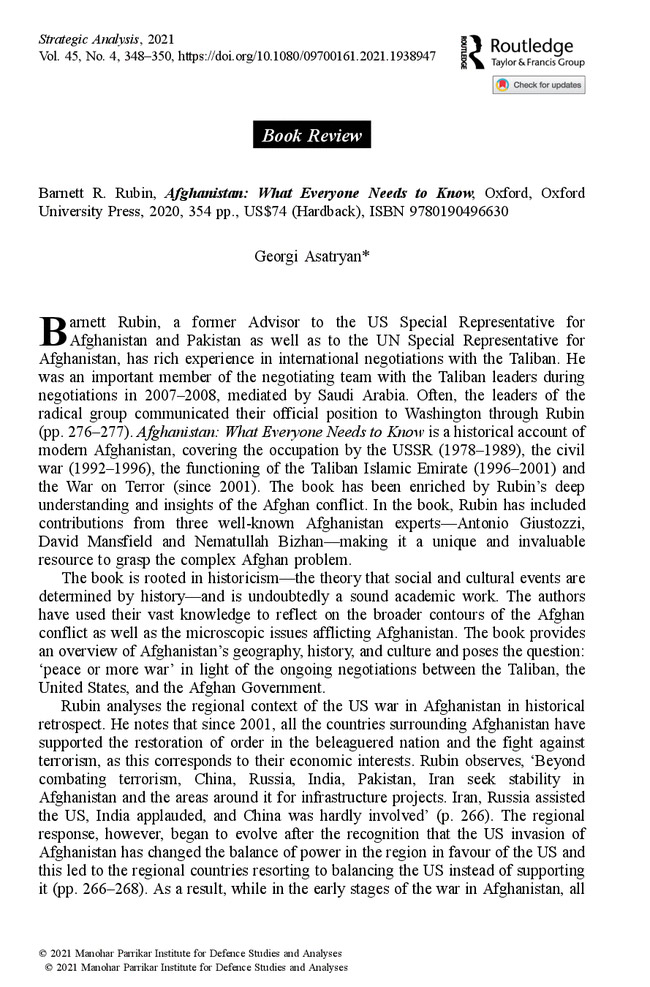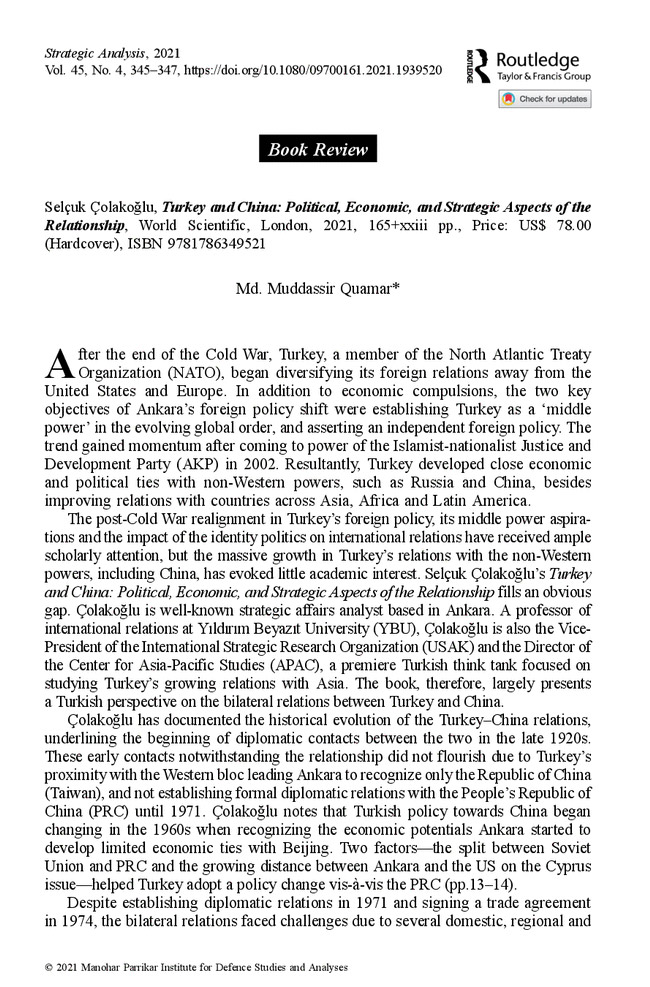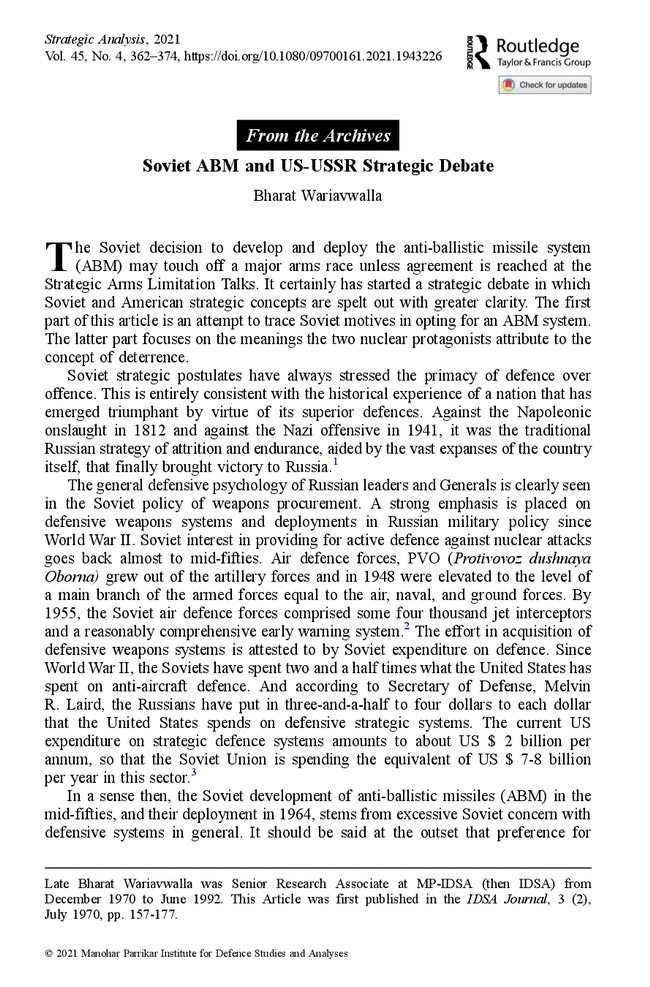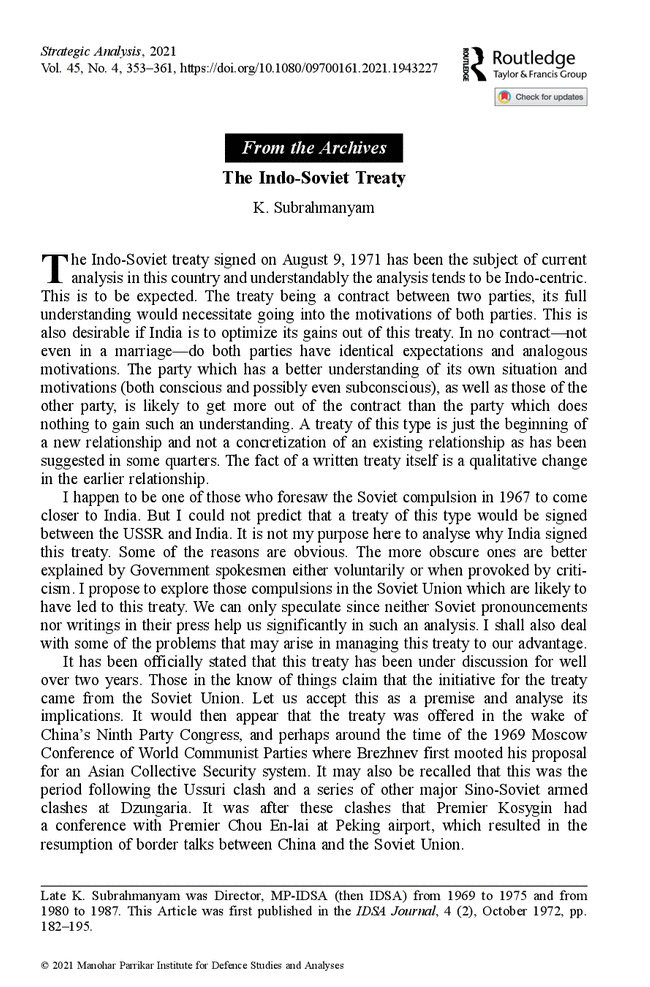Strategic Analysis
Refugees, Border and Identities: Rights and Habitat in East and Northeast India
Anindita Ghoshal, New Delhi: Routledge, 2021, Hardback, ISBN: 9780367706951, Price: INR 1495.00, pp. 310.
- Smruti S. Pattanaik
- July 2021 |
- Strategic Analysis
- |
Transformation of Middle Powers with the Decline of World Hegemony: The Case of Turkey
Turkey is widely considered to be a middle power in the international system. The authors apply hierarchical, behavioural and ideational approaches to the foreign policy of Turkey: each of the three unveils specific features of Turkey as a middle power in the post-hegemonic world. It is argued that the behavioural approach to studying middle powers should be updated to distinguish ‘benign’ and ‘revisionist’ middle power strategies. The factors contributing to Turkey’s transition from being a benign middle power to being a revisionist one are holistically investigated.
- Ali Emre Sucu , Ivan Safranchuk , Alexander Nesmashnyi , Qosimsho Iskandarov
- July 2021 |
- Strategic Analysis
- |
The Formation of the Indian Diaspora
The Indian Diaspora is one of the world’s largest overseas groupings. The Diaspora is considered India's 30th state with over 30 million overseas Indians. This article outlines the main strands of its formation, from the first movement of indentured workers and subsequent phases of migration of skilled professionals to the West and of workers to the Persian Gulf. They remain the single–largest contributor of foreign exchange and development in the country. Understanding its formation is an essential step for studying the Diaspora and engaging with it. This article aims to do that.
- D. Padma Kumar Pillay , T.K. Manoj Kumar
- July 2021 |
- Strategic Analysis
- |
India and the Geopolitics of UNSC Permanent Membership
The United Nations completed 75 years of its existence in 2020. The last 75 years have been a roller coaster ride for this global institution mandated to maintain peace. However, the UN has received widespread criticism for not reforming its various institutions, particularly the United Nations Security Council (UNSC). The G-4 nations which includes India, have led the call for accelerating the long-awaited reform process.
- Vinay Kaura , Chakravarti Singh
- July 2021 |
- Strategic Analysis
- |









